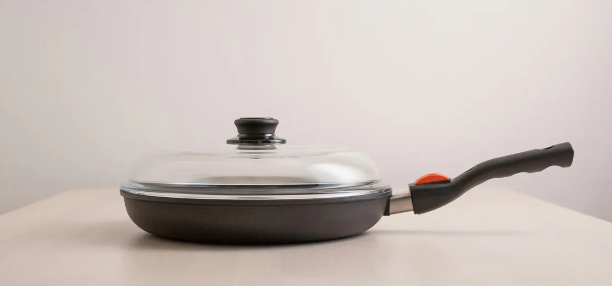Reports of “Polymer Fume Fever” Linked to Nonstick Cookware Reach 3,600

Over the past 20 years, poison centers across the United States have documented more than 3,600 cases of “polymer fume fever,” a flu-like illness associated with chemical coatings found on some nonstick cookware. Commonly referred to as “Teflon Flu,” this condition is named after the trademarked nonstick coating, as reported by The Washington Post.
READ: OAS to Step in as Mediator in Guatemala’s Power Transition Crisis
Fume Fever
In the past year alone, 267 cases of polymer fume fever were reported, marking one of the highest totals since 2000, according to America’s Poison Centers, a nonprofit organization.
The illness is linked to polytetrafluoroethylene (PTFE), the key ingredient in Teflon and many other nonstick cookware items. PTFE is part of the PFAS (per- and polyfluoroalkyl substances) group, often called “forever chemicals” due to their persistence in the environment for thousands of years. When nonstick cookware is heated above 500 degrees Fahrenheit, the coating can degrade and release fumes that contribute to polymer fume fever.
Zachary Hudson, an associate professor of chemistry at the University of British Columbia, explained, “Heating these pans releases a complex mixture of oxidized, fluorinated substances, which is why it’s advised not to overheat Teflon pans.”
A German study examined PFAS emissions by heating empty nonstick pans for 30 minutes. They found that the pan reaching the highest temperature—approximately 698 degrees Fahrenheit—emitted the most PFAS. The study concluded that normal cooking temperatures do not pose a risk to human health.
The US Food and Drug Administration (FDA) has not identified any studies showing that PFAS in nonstick cookware presents a safety concern. An FDA spokesperson stated that all materials used in food contact products are rigorously evaluated by agency scientists.
Experts recommend avoiding preheating nonstick cookware and using it only at medium to low heat to prevent excessive temperatures. Reports suggest that polymer fume fever is often linked to leaving a heated nonstick pan unattended.
For safe cooking practices, it is advised to use exhaust fans or open windows. Additionally, avoid using stainless steel or hard utensils on nonstick surfaces, and discard any pans that are scratched, peeling, or flaking. According to an Australian study, a single scratch can release over 9,000 particles. PFAS exposure from damaged cookware has been associated with health risks, including kidney and testicular cancers.






